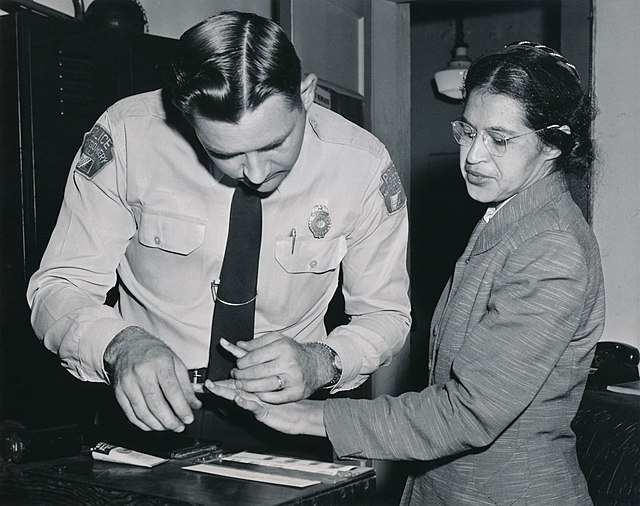Hi there! My name is Alex and I'm currently undertaking my Creative Writing PhD at the University of Lincoln. I'm a big fan of lots of streaming services, books, and am a published poet! I aspire to be a multi-genre,…

Black women you should know about
Activism for racial equality is not, and has never been, limited to one gender more than another. Though the names…
October 13, 2022,
read.
Activism for racial equality is not, and has never been, limited to one gender more than another. Though the names Martin Luther King Jr. and Malcolm X are widely known, as they should be, sometimes they are the only names people know. However, throughout history there have been countless strong, brave women who have fought for civil rights. Many have put their lives on the line, and have been the cause of some of the most integral steps towards equality and justice for people of colour. Here are just a few of the incredible women who have helped change the world.
Rosa Parks
Rosa Parks was extremely active in the civil rights movement in Alabama in America, after she was married to the activist Raymond Parks in 1932. She joined the Montgomery, Alabama chapter of the National Association for the Advancement of Colored People (NAACP) in 1943, and became involved in a lot of the planning that went into the well-known bus boycott that began during the decade that followed. However, she is best known for her arrest on December 1st 1955, when she refused to give up her bus seat to a white passenger. Her act sparked the Montgomery Bus Boycott, which lasted 381 days and eventually led to the complete desegregation of the city’s public transport. Parks and her family moved to Detroit in 1957, and she remained active in civil rights up until her passing in 2005.
Harriet Tubman
Harriet was enslaved from birth in Maryland in 1822, but managed to escape to her freedom in Philadelphia in 1849. The year after she arrived in Philadelphia she returned in secret to Maryland, with great risk to herself, in order to help free her family members. Over the course of the next 12 years she returned nearly 20 times, helping more than 300 enslaved black people to escape enslavement by guiding them along the Underground Railroad. This “railroad” was the nickname for a secret route that enslaved black people used to flee southern states, so that they could reach anti-slavery states in the north of America and Canada. During the Civil War, Tubman worked as a nurse, a scout, as well as a spy for Union forces. After the war she worked to establish schools for formerly enslaved people in South Carolina, and in her later years she also became involved in causes for women’s rights.
Shirley Chisholm
Shirley Chisholm is best known for her 1972 bid to win the Democratic presidential nomination, and she was the first black woman to ever make this attempt in a major political party. However, she had been hugely active and successful in state and national politics for more than a decade, and had represented areas of Brooklyn in the New York State Assembly from 1965 to 1968. She ended up becoming the first black woman to ever serve in Congress in 1968. During her appointment she co-founded the Congressional Black Caucus, a group of solely African-American members of Congress who met to pursue common legislative objectives. Chisholm left Washington in 1983 and devoted the rest of her life to civil rights and women’s issues.
Mary McLeod Bethune
Mary McLeod Bethune was an African-American educator and civil rights leader, and she is best known for her work co-founding the Bethune-Cookman University in Florida. A young Bethune had a huge desire for learning from her earliest days. After occasions of teaching in Georgia, she and her husband moved to Florida and here she founded the Daytona Normal and Industrial Institute in 1904 to provide education for black girls. It merged with the Cookman Institute for Men in 1923, and Bethune served as president for the next two decades. Bethune also led civil rights organizations and advised Presidents Calvin Coolidge, Herbert Hoover, and Franklin Roosevelt on African-American issues. In addition, President Harry Truman invited her to attend the founding convention of the United Nations; she was the only African-American delegate to attend.
Thank to these influential women and their actions, significant legal changes were brought about for the equality and well-being of people of colour. They have also brought about empowerment and continue to do so today, their actions leaving a legacy of strength and resilience for others to draw on in modern times. Though hatred and bigotry still exist, by continuing to work together for equality, respect, and love for people of colour, then they will never ever win.



